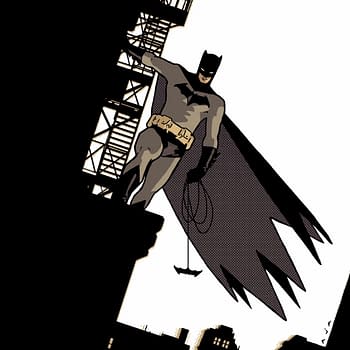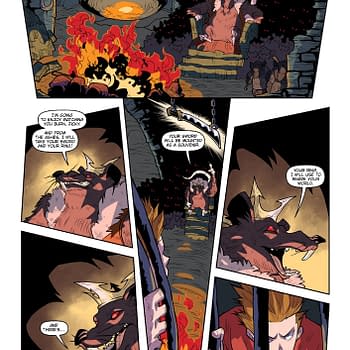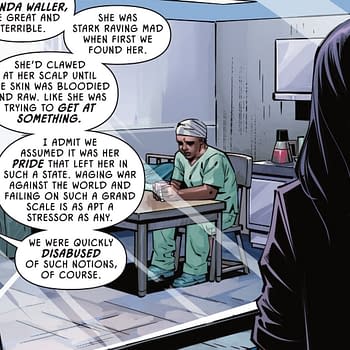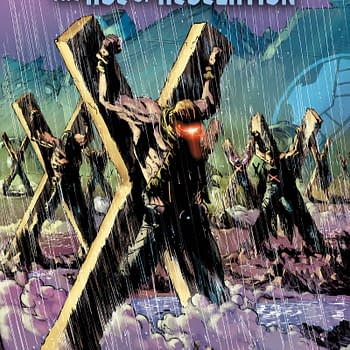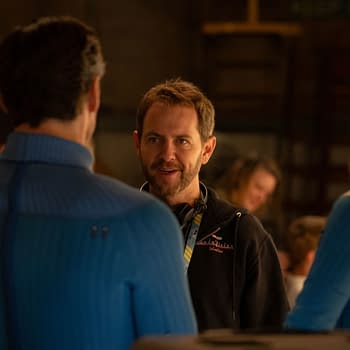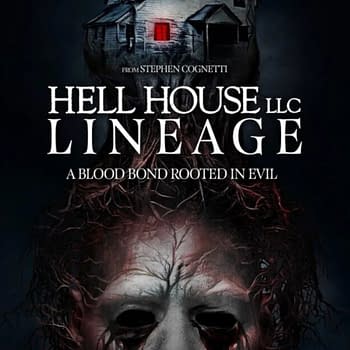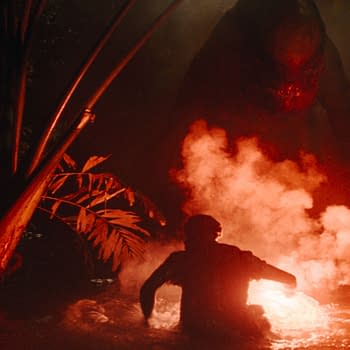Posted in: Movies | Tagged: bbc, lavender hill mob
Just One Shot – The Lavender Hill Mob (1952)
The Lavender Hill Mob is a 1951 film from Ealing Studios that won the 1952 Oscar for Best Writing, Story, and Screenplay, while Alec Guinness was nominated for Best Actor in a Leading Role. It also won the BAFTA Award for Best British Film.
Often described as a perfect film, it has been incredibly influential, a tight high, concept heist movie, which formed the shape that many have followed. An inside job, a gold bullion robbery from someone inexperienced in the art who sees an opportunity and has to hire more professional rogues to make it work. I first saw the film when young and loved it, then again as a young man – and named my own TV sitcom pilot after it – but I hadn't seen it since I moved, lived, and worked in London.
Seeing it again recently on the BBC iPlayer, I was struck by how London looks. Filmed in 1951, the city is severely impacted by the bombing of the Second World War. The composition of so many shots in this film is masterful; I instantly think of the framing of Stanley Holloway's character wistfully ruminating on life's missed opportunities, while Alec Guinness in the background suddenly stops and turns, recognising a fellow traveller.
But I'm looking at one shot here from later in the film. As the first part of the heist is underway, Stanley Holloway is waiting for the bank van, looking at the streets around him and the watch on his wrist.
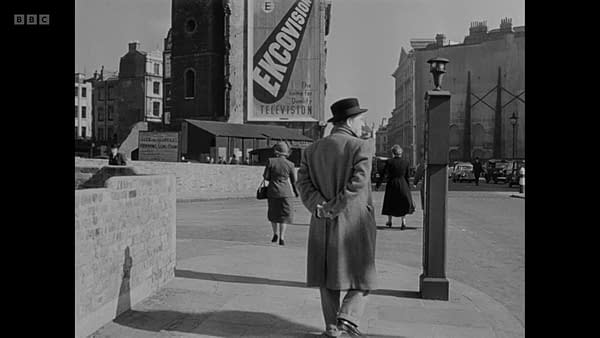
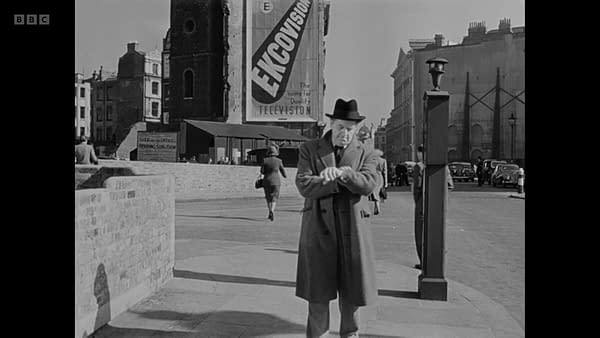
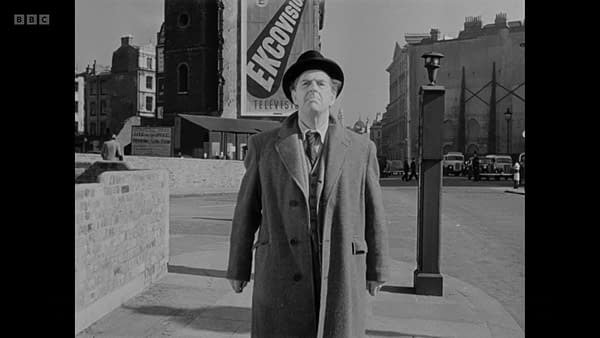
In the background is a bombed site. Buildings that would have been jammed together now with wide-open spaces. But over the top of one of them is a massive street poster for Ekcovision Television.
EKCO, named after its founder Eric Kirkham Cole, was a British electronics company producing radio and television sets from 1924 until 1960m and military radar systems in the 50s. They merged with the better known Pye Electronics in 1960 to become British Electronic Industries Ltd, with E.K. Cole as Vice-Chairman, before he retired a year later and died in 1966 in the Bahamas. The next year, Philips Electrical Industries bought the Ekco/Pye business, and by the early 1970s, the Ekco brand was no more. But, thanks to the Lavender Hill Mob, it lives on in eternity.






